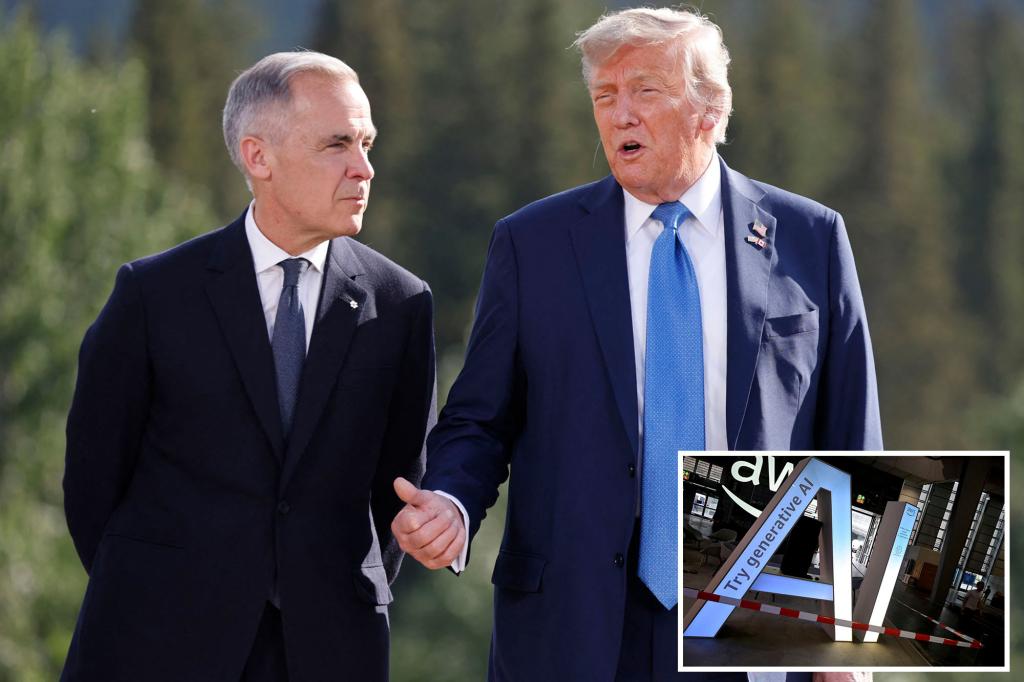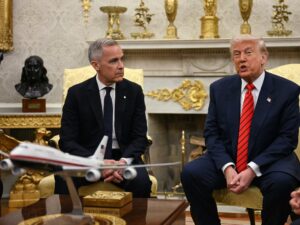
Canada has unexpectedly withdrawn its plan to implement a digital services tax on American technology companies, just days after former President Donald Trump criticized the initiative as a “foolish” and “direct and blatant attack” on the United States. The decision was announced by Canadian Prime Minister Mark Carney shortly before the tax was set to take effect, as Canada seeks to revive trade negotiations with the US ahead of a critical July 21 deadline.
The abrupt policy reversal came after Trump terminated trade talks on Friday, following Canada’s announcement of a 3% levy on revenues generated by companies such as Amazon, Google, Meta, Uber, and Airbnb from Canadian users. The tax, which was to be applied retroactively, would have resulted in a $2 billion bill for these firms by the end of the month.
Background and Political Dynamics
The digital services tax was initially proposed in 2020 as part of Canada’s effort to ensure that large technology companies contribute taxes on revenues earned within the country. This move mirrored similar measures taken by the European Union, which have been a point of contention in international trade discussions.
According to a statement from Canada’s finance ministry, the tax aimed to address the disparity in tax contributions by foreign tech giants operating in Canada. Finance Minister François-Philippe Champagne is now tasked with introducing legislation to rescind the tax, reflecting Canada’s preference for a multilateral agreement on digital services taxation.
Reactions and Implications
The Canadian government’s decision to halt the tax followed a phone conversation between Prime Minister Carney and Trump on Sunday night. Carney’s office confirmed that the tax was paused to facilitate the resumption of trade talks, which had previously been agreed upon at the G7 summit in mid-June.
Trump’s response to the tax was swift and severe, as he announced on Truth Social that all trade discussions with Canada were terminated immediately. He further threatened to impose new tariffs on Canadian goods within the week, stating,
“We will let Canada know the Tariff that they will be paying to do business with the United States of America within the next seven-day period.”
Economic and Diplomatic Repercussions
Trump’s remarks highlighted the economic leverage the US holds over Canada, suggesting that the tax would not “work out well for Canada.” His administration’s stance was that the tax mirrored the EU’s approach, which is also under negotiation with the US.
Canadian businesses have expressed concern over the potential impact of deteriorating trade relations, urging consumers to prioritize Canadian products over American ones. The Canadian Chamber of Commerce has called for a swift resolution to avoid economic fallout.
Looking Ahead
The decision to scrap the digital services tax underscores the delicate balance Canada must maintain in its economic relationship with the US. As both nations prepare to resume negotiations, the focus will likely shift towards finding a compromise that addresses digital taxation without jeopardizing bilateral trade.
As the July 21 deadline approaches, stakeholders on both sides of the border are keenly watching the developments. The outcome of these talks could set a precedent for how digital services are taxed globally, influencing future policies in other nations grappling with similar issues.
Meanwhile, the Canadian government remains hopeful that a multilateral agreement can be reached, aligning with international efforts to standardize digital taxation and prevent unilateral measures that could disrupt global trade.




